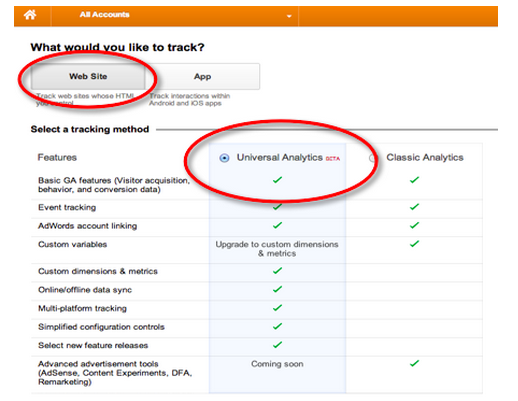People use multiple devices and browsers to surf the web. Last October, Google announced an initiative to help site owners better track site visitors across multiple platforms: Universal Analytics.
When Universal Analytics launched in beta, it was specifically for Google Analytics Premium customers through the new Measurement Protocol.
The Google Analytics team has announced the service is becoming available to all Google Analytics users.
Directly from their announcement, Google describes the following benefits to using Universal Analytics:
- Understanding how customers interact with your businesses across many devices and touch-points.
- Insights into the performance of your mobile apps.
- Improvements of lead generation and ROI by incorporating offline and online interactions so you can understand which channels drive the best results.
- Improved latency on your site by reducing client-side demands.
If you are a current Google Analytics user, there are no instructions as of yet to convert your current property into a Universal Analytics property. For now, you need to create a new property in your account and add new tracking code.

This is because Universal Analytics uses the new Measurement Protocol, which does not rely on the standard Google Analytics tracking IDs and cookies that have been used in the past.
The new Measurement Protocol allows web developers to send raw uesr interaction data directly to Google Analytics servers using HTTP requests. It uses analytics.js as opposed to the original ga.js file. The tracking code, itself is also quite different. Instead of _gaq.push events, you will now use ga() functions. Most functions have similar parameters. The full details can be found in the analytics.js development guide.
The announcement did state a migration guide for current users will be coming soon. But if you can’t wait and want it now, Google recommends creating a new property in your Google Analytics account.
These changes are relatively minor. But for those developers who don’t write their own code, it will likely take a while for most third-party developers to catch on.
For example, if you use WordPress as your CMS, your Analytics plug-in likely only asks for your property ID number and writes the rest of the code for you. To switch, you’ll likely need to avoid that plugin or have two snippets of tracking code on your site.
Search Engine Watch will bring you more information as we get it from Google. For now, let us know your thoughts in the comments below.
